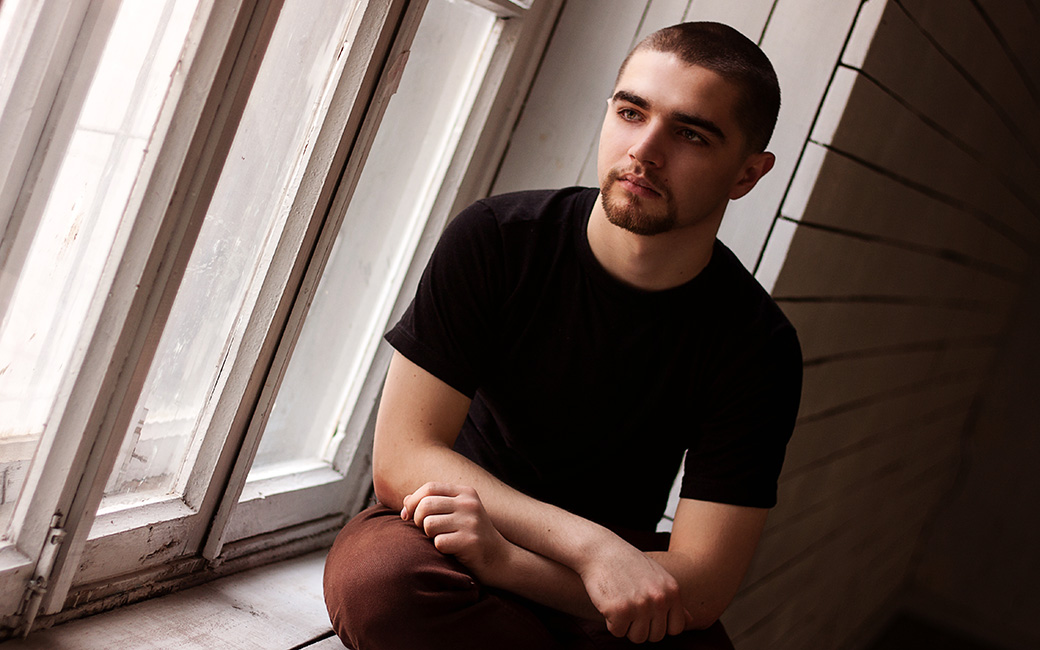TU music student wins international competition
Oleksandr Kostov ’20 placed first in instrumental composition at JSFest 2020
By Rebecca Kirkman on December 10, 2020

TU music composition graduate student Oleksandr “Alex” Kostov ’20 placed first at the international composition competition JSFest 2020 in the instrumental composition category’s student group.
Hosted by the International Culture Association in Turku, Finland, and named for famed Finnish composer and violinist Jean Sibelius, JSFest attracts a broad pool of international applicants each year, including students, teachers and professionals. Normally hosted each fall in Turku, the festival took place virtually this year from Nov. 20–23 due to the novel coronavirus.
Kostov, a native of Ukraine, tied for first place after the judging panel evaluated two of his compositions for confident mastery of composition skills, sophistication of form, sense of style, degree of musical language complexity and originality of concept.
His “Concerto for Piano and Chamber Orchestra,” from which he submitted the third movement, was composed for his capstone project at TU. The other, “Symphonic Picture,” he wrote as a student at the Odessa National Academy of Music in Ukraine.
“I am so proud of Alex and his accomplishments,” says Phillip Collister, TU music department chair. “His music was featured at our annual Prism concert last year, and it’s fantastic that his compositions are being recognized on an international level with this important competition. Alex has a bright future ahead of him.”
The recognition will help distinguish Kostov, who graduates from the College of Fine Arts & Communication (COFAC) Master of Music program this winter, as he applies to doctoral programs.
“It’s the second time in five years a composition student at TU has won an international competition,” says professor William Kleinsasser, head of the music composition program at TU and director of the New Music Ensemble. “We have had students win international competitions before, but it’s not common and it’s a wonderful thing for the student.”
Kostov says his concerto was inspired by “meeting new people, everyday life, missing old friends and family and just observing things around me.” In musical style, he took inspiration from classical modern composers such as Sergei Prokofiev and Béla Bartók. About 12 minutes long, the piece took him nearly a year to write and served as the culmination of his master’s studies.
In his work, Kostov explores polystylism, a branch of postmodernism. “You’re recontextualizing, putting existing styles together in ways they never would have been in their time,” Kleinsasser says. “The design of the piece is the intersection, interweaving and juxtaposition of different styles of music.”
The Ukrainian composer enrolled in TU to work with the program’s high-caliber faculty and to broaden his worldview.
“As a master’s student, he was already a capable composer when he arrived,” says Kleinsasser, who worked closely with Kostov throughout his graduate studies. “But Ukraine is a fairly self-contained musical world, and his teachers there advised him to come out into a different part of the world and experience new things.”
Kostov first connected with TU music theory professor Kalin Kirilov, who is Bulgarian. “They have a lot of commonalities within Slavic music,” Kleinsasser explains. “He brought Alex to my attention.”
At TU, Kostov embraced opportunities like competing with the TU a cappella group Untitled in the International Championship of Collegiate A Cappella mid-Atlantic quarterfinal in February. He also wrote a piece performed by the Bergamot String Quartet, who visited TU in fall 2019 through the New Music Ensemble.
“The university, particularly COFAC, made a huge impact on me as a person and as a musician,” he says. “I'm sincerely thankful to every professor I had a chance to study with here. They all are highly professional musicians, composers and music scholars.”
Kostov credits piano professors Tim McReynolds, Hsiu-Hui Wang and Eva Mengelkoch for helping him grow as a pianist and composer, while a close mentorship with Kleinsasser enabled him to reach a higher quality of music composition.
“He has made the biggest impact on my work, study and development since my first semester here,” Kostov says. “I think he is an outstanding composer and an amazing music teacher with the ability and will to find a unique composer's voice for his students.”
His advice for his peers?
“Trust in your talent and be open to new music. No one is born a good composer—even Mozart—but you can become one!”
more information
Studying music composition at TU
The Master of Music program offers excellent training in performance and composition supported by high-level coursework in theory, history and literature.
- Learn more about the music composition program.
- Request information about Towson University.